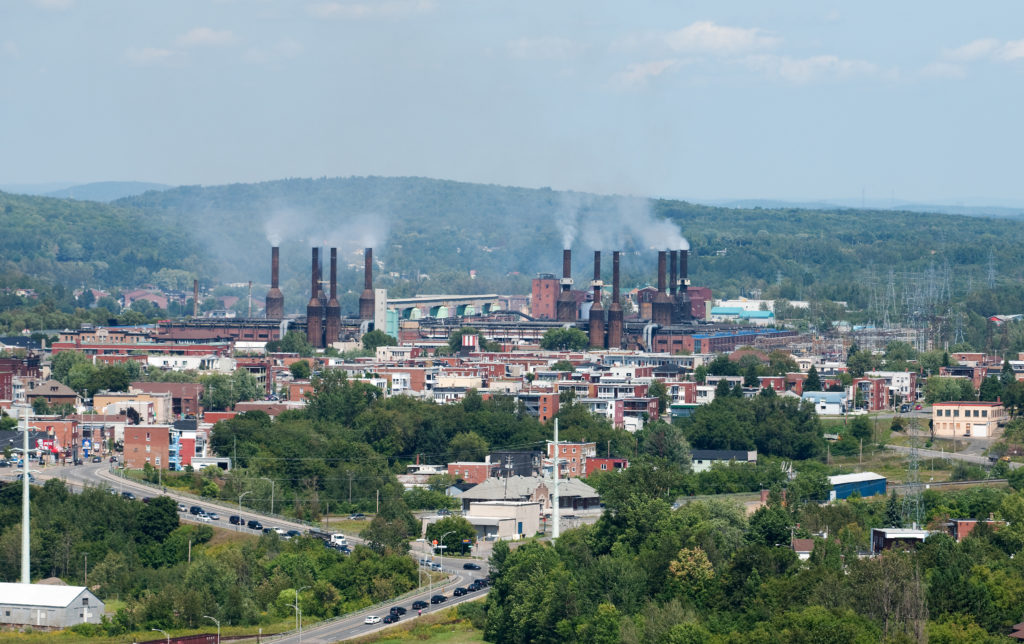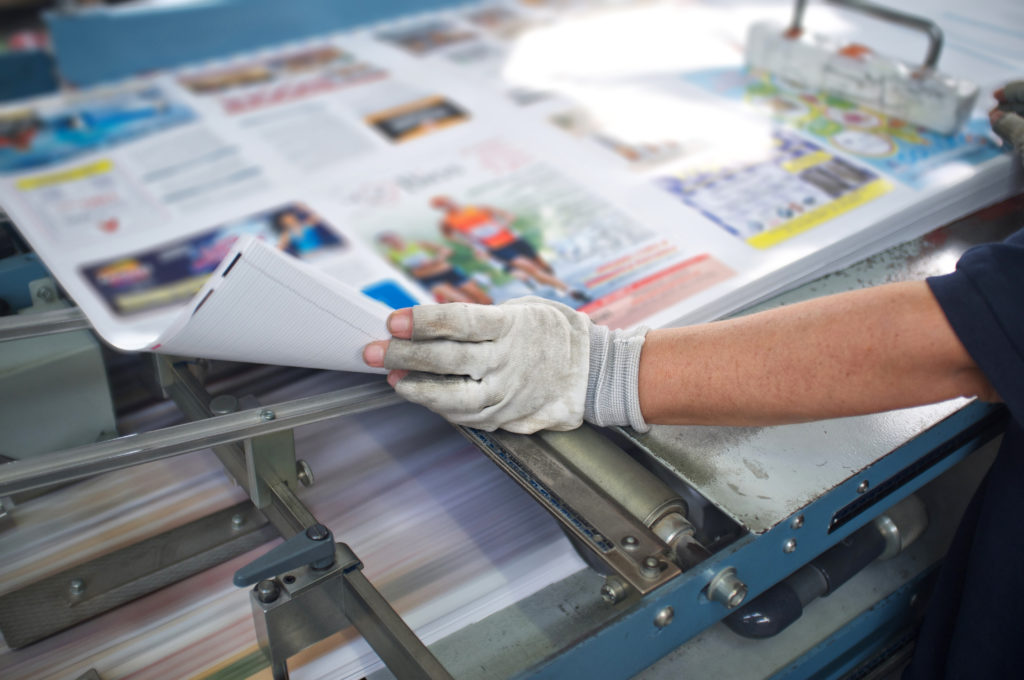A Tender Heart Under a Hero’s Cape:
My Dad, Self Made. And the Fragility of our Companionship.
As implied by his French last name, Durocher translated “of the rock,” my dad represents everything solid.
While he touched hundreds of thousands of magazine readers as a visionary and innovative publisher, he touched my heart even more. He’s the essence of who I am today with his insights cueing my thoughts, his calmness easing my doubts, his strength inspiring my way.
What could come between such a close father-daughter relationship?
“Prioritize content over container,” he taught me.
The first of six children growing up in the low-end section of an industrial French-Canadian town, my dad got to know poverty. In their compact three-bedroom, one-bath rental at the bottom of a hill adjacent to a train track, he shared the living room sleeper sofa with his younger brother, joined at times by a familiar stench of rotten eggs blown in from the nearby paper mill on an unfortunate turn of the wind.
They kept potatoes in the dirt basement, accessible through a ring-pull trapdoor cut out from the kitchen’s linoleum floor, and stored bulk pantry items in the outdoor porch shed next to the upper unit’s staircase. Visiting my grandma as a kid, I could reach the pantry’s slanted granulated roof from those well-worn wooden stairs and had to resist rubbing off specks with my fingers, for I was told it would further wear its surface.
My dad saw his youngest newborn sibling being kept warm on the flat-opened door of the kitchen oven, next to which his nearly-deaf father would also warm up, smoking his pipe on his rocker. A former welder, my granddad had been laid off from a local factory after losing most of his hearing while on the job.
My grandma, a hardworking at-home seamstress, proudly never sent any of her kids out with a rip in either of their two outfits: One for Sundays, another for weekdays. While he appreciated her dedication, my dad resented her exclamation, “We’re destined for the short end of the stick.” He couldn’t stand coming home to lines of clothes in the kitchen on laundry day and deplored the church’s food baskets received over the holidays.

Aspiring to attend college and one day work for NASA, my dad was angry when his father pulled him out of high school to work at the aluminum plant. He told me of having learned a single skill before quitting the entry-level blue collar job for a riskier position: how to check off his work faster by holding two pencils at once.
“That’ll not do,” he instilled in me.
Anxious to leave the bottom of the “mail hill,” locally referred to as such for being the last stretch on the mail carrier’s run, he self-educated through library books and mail-order business case studies. At eighteen he landed a commission-only sales job at the local newspaper. At twenty-three he married my mom, a girl from a slightly better-off family of ten across town, and they moved to Montreal where I was born two years later. I still have the copy of The Montreal Star newspaper, where he worked for five years, that he saved from my birth day. He subsequently joined Canadian Publisher Pierre Péladeau’s Quebecor team and their new Francophone tabloid Le Journal de Montréal, now the largest French-language daily paper in North America.
My dad possessed a desirable trait for success in advertising sales: hunger.
Out celebrating a paramount contract one night, his friend Jean LaSalle stunned him: “Yeah, this five percent commission is great!” he said. “Imagine the one with ninety-five percent in his pocket!”
Graduated from Columbia University and blessed with a nonjudgmental upbringing, Jean had met my unschooled dad soon after his arrival in Montreal and found their conversations most stimulating. A close family friend for as long as I remember, he was instrumental in my dad’s success and stands out as his most loyal friend and consultant.
“Can’t be worse than the bottom of the mail hill,” he assured me.
With a revelation that night prompted by Jean’s comment — and infallible stamina sprouted out of the old mail hill as a worst-case fallback scenario — my dad resolved to go out on his own and publish a magazine.
I was about eight when he woke me up with his first copy hot off the press. Half asleep, my heart filled with pride and happiness as I smelled the fresh ink and gazed at the crisp cover, awed by my daddy’s work.

It failed. The TV-star publication sold two copies, including one to his mother.
“Check your premises,” he instructed me.
After my dad got his job back at Quebecor, he analyzed what went wrong and concluded that, although knowledgeable about publishing, he had ventured into content he knew nothing about: entertainment.
He resolved to start another magazine, this time about something he enjoyed: home improvement. With $10,000 borrowed from a friend and his siblings, market research from Saturday chats in local hardware stores and the help of a few inspired teammates working out of a church basement, he launched another publication. An instant hit, the magazine quickly sold out, with subscription slips rolling in by the mail sacks.
Over the following twelve years, with a sustained vision of high quality, uncanny market intuition, keen sensitivity to readers and a daring recipe of reinvesting nearly all profits into each next idea, my dad pioneered a dozen beautiful and engaging magazines. With publications mostly reaching Quebec’s Francophone readers and a few special issues hitting farther newsstands in Canada and the U.S., he built a profitable company where every employee became a stockholder, every partner a millionaire.
“My owlet,” he called me.
Discreetly tagging along outside school hours and confidentially sharing in his ups and downs, I cheered him on as he led this thriving publishing house and turned visions into realities.
Our special bond had developed throughout a myriad of unassuming father-daughter teaching moments: skiing in his tracks, building campfires under his watch, barbecuing by his side. We would giggle.
As he switched hats between buddy, educator and knight, my dad would often just listen, his index finger mechanically stroking his upper lip, a reflex I sometimes catch myself mimicking. Other times he could be brutally plainspoken and force me to look when I didn’t want to see.
“Claude,” as I called him, “would that be fair?” I once consulted in high school. I was hoping to justify an unethical decision regarding some teen dilemma.
“Is it straight?” he asked.
“Gray area,” I responded.
“If it’s not straight, my owlet, it’s inevitably crooked,” he dropped.

Somewhere between bringing me to the local library and walking me down the aisle, my dad became a very tight ally. One look and we knew what the other was thinking. We laughed at the same jokes, partook in each other’s Happy Hours as easily as we shared in family dinners.
And we each cared enough to argue. In Italy while vacationing with our better halves, we once spent a glorious day ignoring one another through obstinate silences and petulant pouts, making for long, awkward, albeit delectable, Italian meals.
He was humiliatingly blunt. He annoyingly held me to my word and irritatingly repelled every guy who didn’t deserve me. He made mistakes, apologized for some. He never yelled. He respected my space and trusted my decisions. He never refused my request to sit next to him. I told him practically everything.
“A good deal is when both are happy,” he passed on to me.
I was starting college when he got tired and scared. One crisp fall day out on a walk with him, next to the trickling sound of a brook itching to freeze over, he told me about terror. Dark blue rings cupped his hazel eyes, and deep vertical lines had formed between his eyebrows. Shivers kept him up at night. While he loved what he did, my father had reached a point where he was petrified of losing it all.
Faithful to his belief that a good deal agrees with both parties, he conclusively reversed his mom’s idea of destiny and sold to Quebecor for a hefty early retirement fund. He took a year’s rest, traveled some, moved to France, enjoyed some cheese and wine.
Too much so? Unfortunately, we’ll never really know. Amid the rich diet, sedentary lifestyle, heavy smoking and lack of medical checkups, a fatal heart attack took the best of his healthy-looking body a few years later at 54.

I didn’t believe it when I got the news that Monday. I was alone, preparing dinner. I suppose the young woman didn’t expect me to get so upset over the phone, when I yelled at her for making such a bad joke before my legs gave out and I lowered to the floor. On the kitchen tile, I sat in tears and disbelief. My friend, my confidant, my dad… gone? I had just spoken to him five days prior when he called to wish me a happy 30th birthday. It couldn’t be.
He was lucky: He didn’t suffer.
I didn’t feel lucky, more like destroyed.
“What are you going to do?” asked my husband beside me that night.
“Take five minutes at a time,” I muttered, shocked and without a plan.
“Get back to basics,” he reminded me.
In this deep and poignant sorrow, I returned to daily life. My husband, always respectful of our father-daughter bond and also grieving, stood by for support. Jean, in a godfatherly manner, recalling his years with my dad as the most exciting and interesting of his life, brought comfort and direction. Yet an underlying emptiness lingered, continual heart-wrenching reminder that my daddy was gone: the lonely feeling of loss.
In addition to providing for me with a tender heart under a hero’s cape, my father saw me. Sure, there were wounding disappointments, unkept promises and character flaws uncovered over the years. I looked the other way. I went all in and never felt alone.
Until death came between us.
Prompted for advice on what could assuage the grief, my widowed mother-in-law offered, “Just time.” She was right. For me, a window of relief opened about a year later.
While journaling one night, I realized how fortunate I had been to experience such a remarkable bond. Lightness gently pulled me up as I shifted my perception from lack to abundance: While my dad was gone, I was thankful for the gift of his presence in my life and our wonderful father-daughter relationship, vulnerable camaraderie, true solidarity.

The richness of our affection was superseding the painful mourning with one last takeaway: In relationships, like in business, it is worth going all in.
“Keep up with the eagles,” he coached me.
I founded a small business of my own a few years ago and started another venture recently: this writer’s blog, launched this year on his birthday.
Now age 54 myself, tiptoeing in my dad’s entrepreneurial footsteps, I wish for his presence and support. I ask for his courage, ambition, tenacity.
“Fly with the eagles,” I can hear him whisper, nudging me to my full potential. I like to think he’s really flying up there now.
Today I celebrate my dad, a great man. Alongside his missteps and humanness stood his bravery and triumphs. With profound gratitude for the blessing of father-daughter love, I remember his goodness and honor his heritage. He was a rock. Surely, he was mine.
In memory and honor of
Claude Durocher
1942 – 1997

Sidebar
Born in 1942, Claude Durocher passed three months short of his 55th birthday in 1997. RIP
He named his publishing company Les Éditions Le Nordais, Ltd. for its North Eastern location in North America.
Home improvement Rénovation Bricolage came out in 1976 (later published in English under Canadian Workshop). My mom recalls Canadian business school HEC Montreal approaching my dad to include the exemplary venture in their case studies.
Other iconic magazines included Clin d’oeil (fashion), Chez Soi (decor), Santé (health) and Sel & Poivre (cooking). I still have many original issues including a summer edition of Barbecue I recently saw up for sale on eBay and a Sel & Poivre holiday collector’s item I spotted on Amazon for $90.
Mr. Pierre Péladeau (1925 – 1997) purchased my dad’s operations at the end of 1988. Although it carries a very different look and feel, Clin d’oeil is still in circulation today under Quebecor’s magazine division, TVA Publications. The company stopped publishing home decor magazine Chez Soi in 2016. RIP
My dad was once referred to as the ancestor of modern magazine publishing in Quebec, having revolutionized its industry. Source: René Pelletier, Info Presse Canada, Nov. 1985, pg 34.
His friend Jean LaSalle (1942 – 2018) recalled my father as the first unschooled person he met. Raised by a physician and, uncommonly then, a college-educated homemaker, he had the quality of looking for and appreciating the gifts inside whomever stood before him. RIP